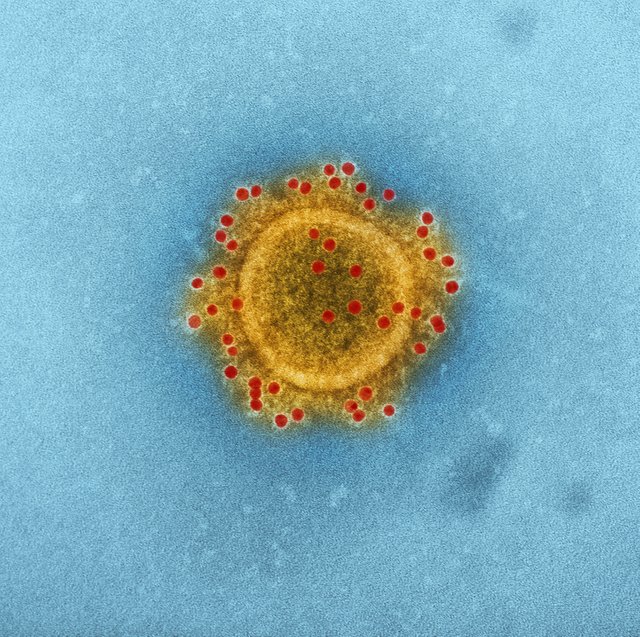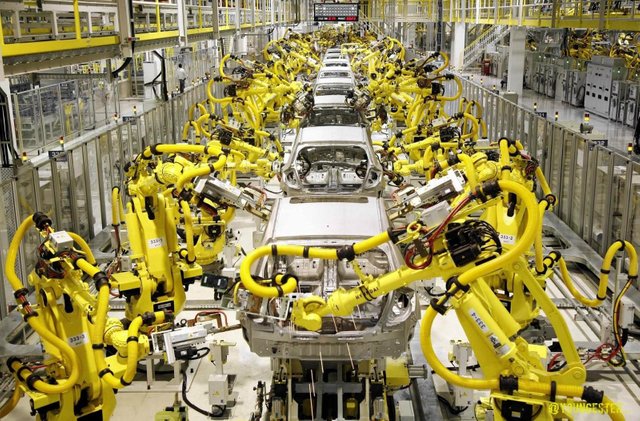The coronavirus shows how vulnerable and dependent we are in times of globalization


Over the past decades, with a view to saving costs, we (multinationals) have moved various production processes to other parts of the world, mainly to China. So not only 'useless junk', but also essential medical items.
We now experience the crisis at first hand. Not only our cars come from long production chains that are more uncertain than previously thought, it also applies, for example, to our medicines and therefore to our health. In the future, we can better prepare ourselves for this. In that respect, the coronavirus can be seen as an important catalyst for a process that has been going on for some time: deglobalization. Or in other words: reshoring or relocating the production chain.
Due to the increased scaling up and intensification of the livestock and meat industry (the main source of pandemics), according to some experts, disruptions such as these will become 'endemic' - that is, structural.
In the long run, the costs of globalization will therefore become greater than the benefits, which - see the increased inequality - only ended up with the one-percent club anyway. How many of these types of disruptions in their chains can Apple and Fiat afford before they come to the conclusion that things have to change, that regionalization, proximity, simplicity, and transparency are the answer?
A globalization adjustment
The future cannot be predicted, but there have been signals for some time that sketch a globalization adjustment. I'm not only talking about all kinds of ideological and political-cultural sentiments, but there are also all kinds of economic trends that point in that direction.
For example, labor in China is no longer as cheap. Robots are replacing more and more labor (which can actually also be done locally) and increasingly stringent climate and working conditions, geopolitical uncertainty and declining foreign investments also contribute to the fact that some sort of deglobalization seems to be a serious trend.

Could it really be? Could the coronavirus - with the ecological crisis in the background - be the start of the end of current industrial globalism? Time will tell. Yet large-scale change is in the air, no matter which way it goes. "The crisis consists precisely in the fact that the old is dying and the new cannot be born", the Italian philosopher Antonio Gramsci once wrote. To immediately add that it: "in this interregnum a great variety of morbid symptoms appear."
In his book titled 'Everything Was Forever, The Last Soviet Generation' (2006), Russian historian Alexei Yurchak describes the after-days of the Soviet empire. The grandeur and luster were long gone, people lived in a broken and dysfunctional system, and they knew it.
Yet - and here it becomes intriguing - no one could imagine an alternative to the status quo. Everyone, from politician to citizen, played in an illusionary spectacle in which people pretended that everything just worked fine. Because there was no alternative, over time this illusion became a self-fulfilling prophecy and everyone accepted its total artificiality.
Mikhail Gorbachev later observed, just before Chernobyl, that "at that time we realized for the first time that the system as we knew it had become untenable."
But back in March-April 1985 we found ourselves facing a crucial, and I confess, agonizing choice. When I agreed to assume the office of the General Secretary of the Communist Party of the Soviet Union Central Committee, in effect the highest State office at that time, I realized that we could no longer live as before and that I would not want to remain in that office unless I got support in undertaking major reforms. It was clear to me that we had a long way to go. But of course, I could not imagine how immense were our problems and difficulties. I believe no one at that time could foresee or predict them. - Mikhail Gorbachev
Those who were then governing the country knew what was really happening to it and what we later called “zastoi”, roughly translated as “stagnation”. They saw that our society was marking time, that it was running the risk of falling hopelessly behind the technologically advanced part of the world. Total domination of centrally-managed state property, the pervasive authoritarian-bureaucratic system, ideology’s grip on politics, monopoly in social thought and sciences, militarized industries that siphoned off our best, including the best intellectual resources, the unbearable burden of military expenditures that suffocated civilian industries and undermined the social achievements of the period since the Revolution which were real and of which we used to be proud – such was the actual situation in the country. - Mikhail Gorbachev
Nobody can tell for sure how long this virus will stay with us, but one thing seems certain, the battle is far from over. The longer it takes and the more widespread the complications, the more it will ultimately affect our belief in globalization as the final destination of humanity.

Photo 1 by CDC on Unsplash
Photo 2 source
References and links:
- Coronavirus outbreak in China could lead to 'critical' shortages of medical products in the US
- As Coronavirus Disrupts Factories, India Curbs Exports of Key Drugs
- Mikhail Gorbachev – Nobel Lecture
- about 'Everything was Forever, Until it was No More: The Last Soviet Generation': Soviet socialism was based on paradoxes that were revealed by the peculiar experience of its collapse. To the people who lived in that system the collapse seemed both completely unexpected and completely unsurprising. At the moment of collapse it suddenly became obvious that Soviet life had always seemed simultaneously eternal and stagnating, vigorous and ailing, bleak and full of promise. Although these characteristics may appear mutually exclusive, in fact they were mutually constitutive. This book explores the paradoxes of Soviet life during the period of "late socialism" (1960s-1980s) through the eyes of the last Soviet generation. - from Goodreads.com
Hi appreciated @keysa.
You talk about deglobalization. I found this term very relevant in the subject you are developing.
But as you know, Globalization consists of economic, technological, political, social and cultural exchange at the intercontinental level. Allowing communication and interdependence between nations.
Now, what happens with China is that the nations of the world became exclusive consumers of the products and technology of the Eastern Giant. There is no interdependence. What exists is a great dependence on other nations with China.
They made the classic mistake of "Putting all the eggs in the Same Basket".
We must recognize the hard and intelligent work of the government and the Chinese People, to have managed to turn the rest of the world into their client portfolio.
Your friend, Juan.
Hello @keysa
Thank you for posting within our hive. I upvoted your content already. Please spare few minutes and read how project.hope is organized and learn about our economy.
That would help you understand more our goals and how are we trying to achieve them. Hopefully you will join our community and become strong part of it :)
Do you use telegram or discord? If you do then join our server and give me a shout. I would gladly share with you goals of our community and introduce to others from our team.
Our discord sever: https://discord.gg/uDKWd4
Yours,
@project.hope team,
Dear @keysa
Interesting read. Indeed corona virus exposed many weaknesses of current manufacturing and supply chain across the globe. And it underlined how badly we all need China.
I'm wondering if entire world will end up bailing out China or will let their economy collapse.
I wonder what do you think about 3d printing? Could it be used on massive scale in times when supply chain is distrubted?
Most likely after current crisis - labor in China will be cheap again. Simply because I cannot imagine their currency to stay as strong as it has been in past years.
Upvoted already :)
Yours, Piotr
One more question @keysa - didn't you consider powering up little bit? Don't you struggle with lack of RC (Resource credit)?